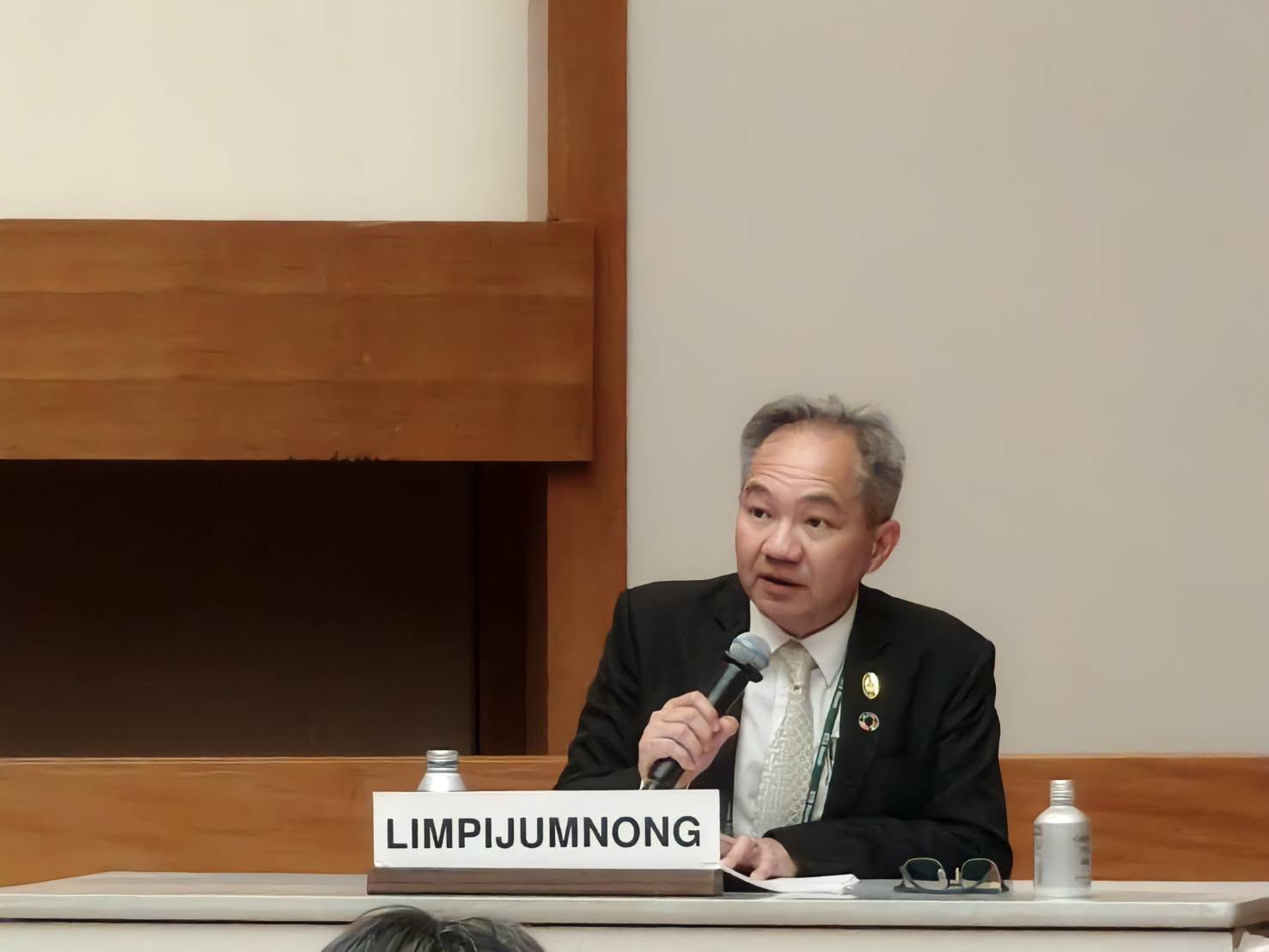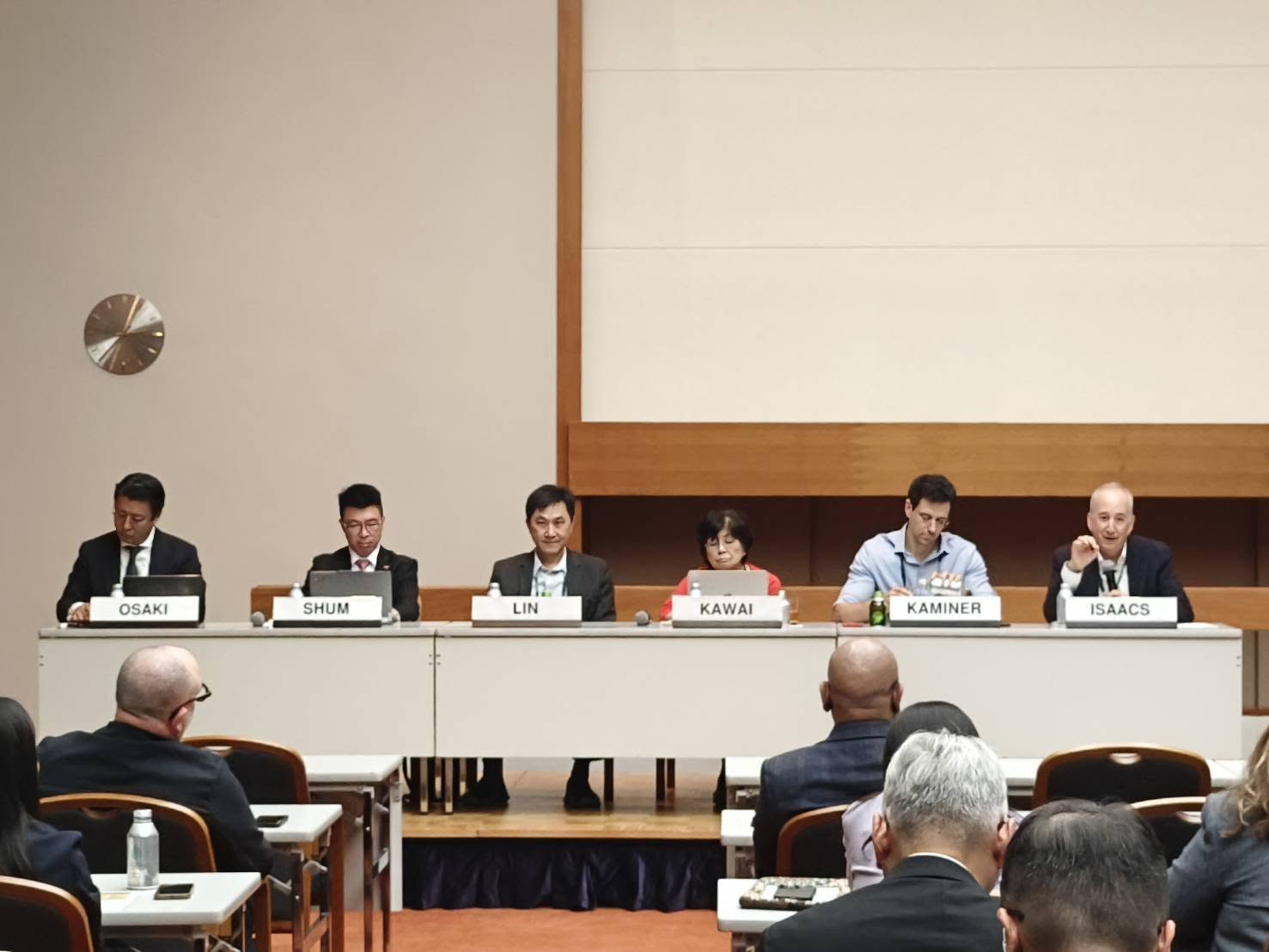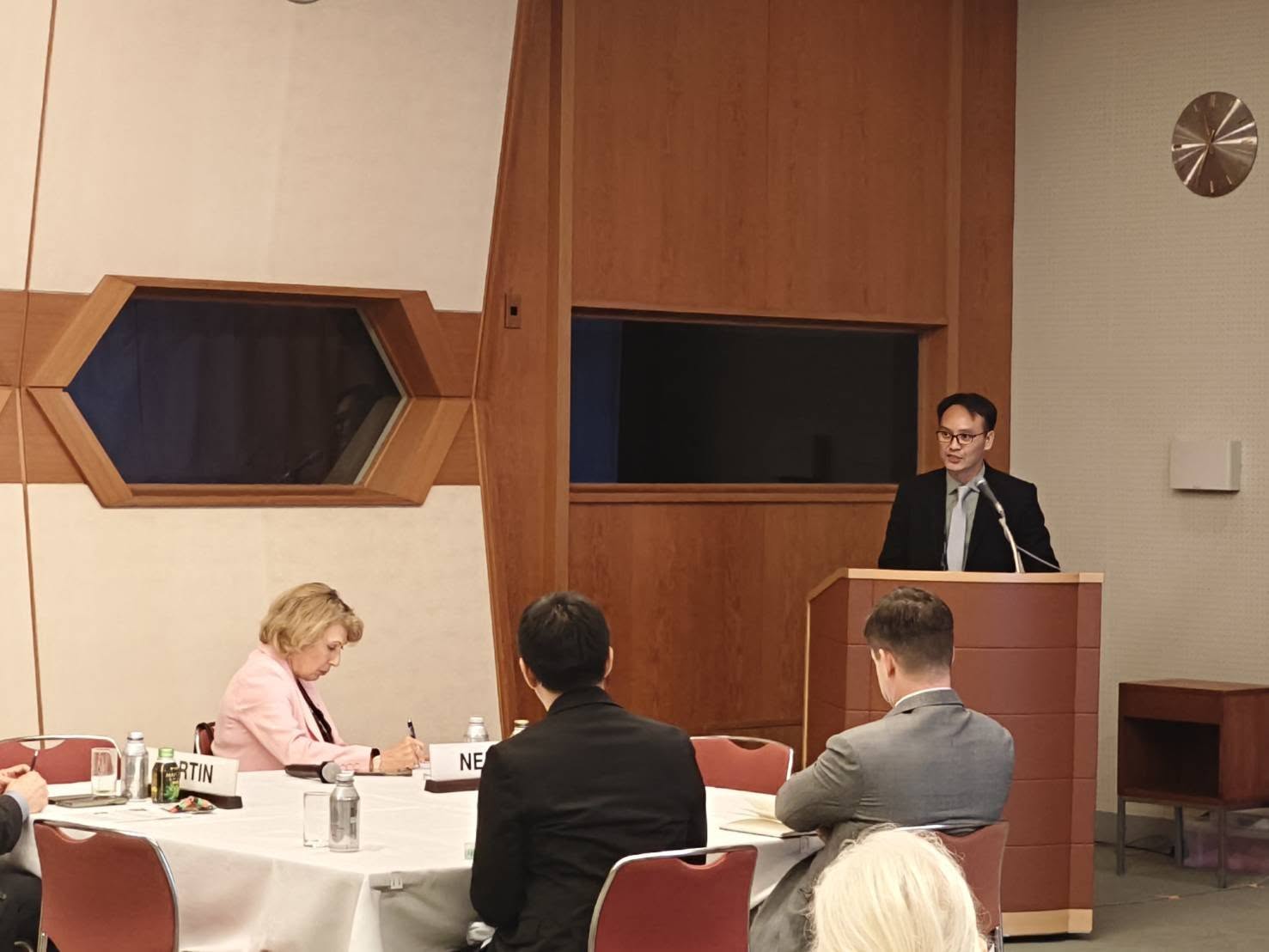Kyoto, Japan, October 6, 2025 – Professor Dr. Sukit Limpijumnong, President of the National Science and Technology Development Agency (NSTDA), served as Chair of the session titled “Synergies Between Materials Science, Next-Generation Devices, and Computational Advances: Pathways to Innovation, Sustainability, and Quantum Frontiers” at the Science and Technology in Society (STS) Forum 2025. The discussion highlighted how the convergence of materials science, next-generation devices, and advanced computational technologies is reshaping the global technological landscape—driving new opportunities in innovation and sustainability, particularly in the fields of energy, communications, healthcare, and digital infrastructure.


A key insight shared during the session was that artificial intelligence (AI), along with every technological advancement today and in the future, is deeply rooted in materials science research. Scientists worldwide are focusing on developing high-performance hardware to support rapidly evolving technologies. However, one of the major challenges lies in ensuring sustainable access to and use of rare materials essential for developing and manufacturing new-generation devices. The discussion also underscored the importance of discovering novel composite materials that could pave the way for the next transformative era beyond the “Age of AI”—toward a more balanced and sustainable technological future.
Distinguished thought leaders from academia and industry participated in the session, including Dr. Eric D. Isaacs, President & CEO, Research Corporation for Science Advancement, USA; Prof. Dr. Ido Kaminer, Technion – Israel Institute of Technology, Israel; Prof. Dr. Maki Kawai, National Institute of Natural Sciences (NINS), Japan; Dr. Horng-Dar Chris Lin, Taiwan Semiconductor Manufacturing Co., Ltd. (TSMC), Taiwan; Prof. Dr. Anderson Ho Cheung Shum, City University of Hong Kong, Hong Kong SAR, China; and Mr. Masataka Osaki, NVIDIA Corporation, Japan.

In addition, Dr. Chai Wutiwiwatchai, Executive Director of the National Electronics and Computer Technology Center (NECTEC-NSTDA), participated as a speaker in the sub-session “AI in Government: Services and Delivery.” He shared insights on how AI can enhance the efficiency and transparency of public services, addressing opportunities, challenges, and governance frameworks. Dr. Chai also presented Thailand’s readiness and progress under the National Artificial Intelligence Action Plan (2022–2027), as well as related initiatives by the Ministry of Higher Education, Science, Research and Innovation (MHESI), which aim to strengthen AI workforce development, foster innovation ecosystems, and promote responsible AI governance to drive sustainable economic and social growth and reduce inequality. Examples of AI applications in key sectors—such as medicine, public health, and education—were also discussed.
Furthermore, the NSTDA President attended the STS Forum General Meeting to exchange views on the Forum’s activities and the STS Forum Council Meeting to contribute to the preparation of the STS Forum Statement 2026, which will address global challenges across multiple dimensions.
